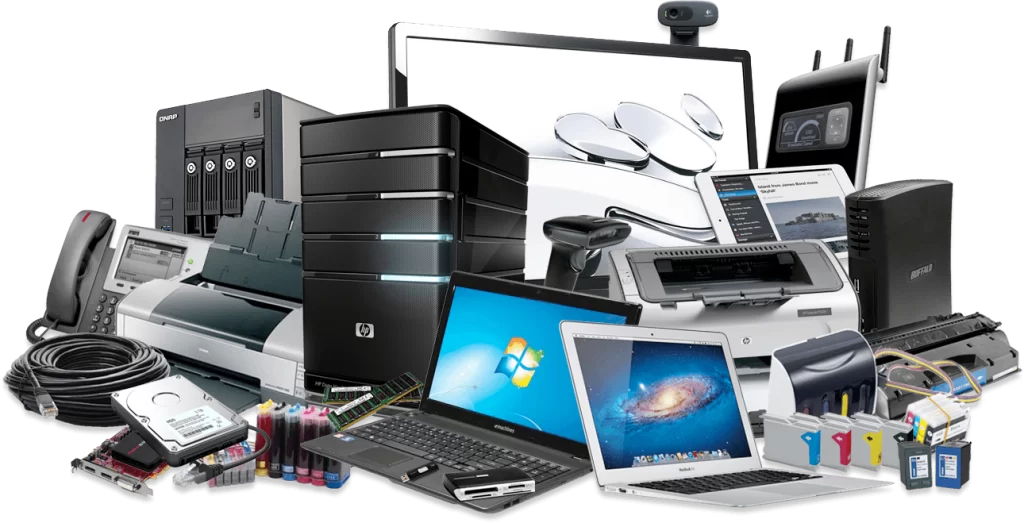How to Get a Favorable Bedriftslån Uten Sikkerhet

Starting your own business is a brave undertaking because such an “adventure” usually requires a lot of money. No matter how good an idea you have, if you don’t have regular financing, you’ll have a lot of trouble finding a place for your company in a competitive market.
More or less, the same goes for already-established companies that constantly have to invest in their business to remain competitive. Of course, that requires significant resources, and a problem can arise if you don’t have them. That often happens in the first years of business when the profit is still not at the desired level.
Both situations are common, but there’s a solution for such a scenario. Lenders have designed numerous business loans for different borrowers’ needs. So, for instance, if you’re starting and don’t have enough assets to use as collateral, you can check out https://billigsteforbrukslån.com/bedriftslån-uten-sikkerhet/ for the offer of unsecured business loans.
How Unsecured Business Loans Work
Small business owners and new entrepreneurs often don’t have enough capital for business financing. In order not to give up on their idea and what they have already invested, they decide to borrow money. And when they have nothing to offer as a loan repayment guarantee, the solution is to rely on their “own strengths,” i.e., credit score, company’s profit, and its potential for growth and success.
Based on that, business owners can apply for unsecured loans. They are a lifeline for those who don’t have enough valuable assets or simply don’t want to lose them in case of repayment issues. So if you manage to get this unsecured credit, you’re at no risk of losing your property or anything else you may have put as collateral.
For this reason, unsecured business loans come with slightly higher interest rates and stricter eligibility requirements than secured ones. That makes sense because such arrangements carry a high risk for the lender. Since there is no collateral they can use to cover potential losses due to your non-payment, they set higher interest and costs to compensate for that risk.
In general, when you borrow money with no collateral, you can get smaller amounts (from a few thousand to several hundred thousand dollars) to pay back within a shorter repayment period (up to a year, although some lenders offer 5-year tenure).
You can get these loans at both traditional and non-traditional lenders. Of course, their lending requirements differ, so it’s good to know some things before applying for this type of business financing.
Know Your Needs
In general, you can use borrowed money for any needs related to your business. You can buy new equipment, train new workers, pay salaries, or consolidate some previous debts. This freedom is one of the main reasons why unsecured loans are a real deal for start-ups and small businesses.
For lenders, the reason you borrow money isn’t the deciding factor as to whether they’ll approve your application. But that’s not the case with secured loans, where you must justify your application. Logically, these arrangements involve large sums of money, so the lender must know why you need it.
However, you need to know your financial requirements to have a good starting point in choosing a loan. When you look at your needs and financial capability, you can decide how much money you can borrow and pay back within the agreed period.
Choose a Lender
The offer of unsecured business loans is very diverse because many traditional and non-traditional lenders offer these financial arrangements. As said, it’s important to know their offers and lending requirements to know which one to choose. You need to make a well-informed decision and not apply for too many loans in a short time because it can hurt your credit score.
Traditional Lenders
Traditional lenders are banks and credit unions, which provide the safest method of financing, given their credibility in the financial world. However, these institutions are often not the most favorable option. They may have stricter lending requirements than online and other non-traditional lenders.
Banks and credit unions also operate online and allow borrowers to apply for a loan in this way. But this procedure can be tricky and complex, given the rather strict requirements of these lenders and all the paperwork you must attach to your application. Also, credit checks are very detailed, resulting in days or even weeks of waiting for a response.
In general, a lender must have a good loan offer, a proven track record, and a solid reputation among customers. Of course, the overall cost of borrowing money is a critical detail for your choice, but don’t neglect these, so as the lender’s customer support. That can be of great help when you get stuck somewhere in the process, so it’s good for them to be helpful and at your disposal.
Alternative Lenders
On the other hand, online or alternative lenders operate entirely digitally, meaning you don’t have to go to an offline branch to apply for a loan or submit papers. The procedure is simple and fast, which means quick processing of your request, as well as getting a response.
Also, online lenders have special offers for companies that don’t have a stellar credit rating. It means you can apply even if you have previously had financial difficulties, which reduced your credit score. That can be an excellent chance to get back on track, but you should be careful. These arrangements usually come with a high price tag.
Check Eligibility Criteria

Every business has unique needs, so financial institutions have created a wide range of unsecured loans. In order to avoid lengthy checks and complications, lenders determine a set of general eligibility criteria that borrowers should meet.
In general, your company should show a good credit history. The cash flow for the previous period should be positive, and there should be no recent records of bankruptcies or late payments. That will show the lender that you’re a reliable borrower, which boosts your chances for more favorable financing.
As a company owner and loan seeker, you must also have a good credit score. Banks generally require over 680, while non-traditional lenders have slightly lower criteria (around 600). Keep in mind that some lenders ask for no collateral for unsecured loans but may require some of your personal assets as a guarantee for repayment.
Some lenders have additional requirements. For example, borrowers should be in business for at least a year in order to be able to apply for a loan at all. It cuts the wings of many start-ups that have just entered the market. If you’re among them, look for lenders that work with start-ups and give dedicated unsecured credits for that type of business.
Understand the Risks

Unsecured loans are good to help you overcome some business difficulties. They come with lending terms, and if you act responsibly toward them, you won’t have any problems. Moreover, your credit score will improve, as well as your creditworthiness, so you can get even more favorable loans in the future.
However, you must understand that these arrangements carry certain risks. For example, the already mentioned personal guarantee on behalf of borrowing money for your business can threaten your personal finances.
Also, if you don’t shop around, you can get stuck with a very unfavorable loan. And finally, maybe this way you can’t get as much money as you need. Then you can think about secured business loans or some other alternatives to this type of financing. Get more details on them on this page.
Financing a business can be tricky, especially when you’re limited with capital. Luckily, unsecured businesses loans step in and give you wind in your sails. Sure, you must weigh all pros and cons of these arrangements and decide on the one that suits you best.


